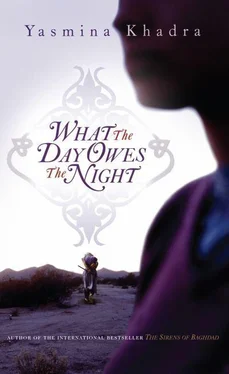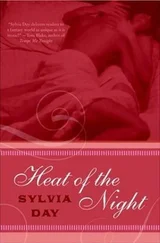‘So?’ Fabrice asked.
Simon slumped into a wicker chair and folded his arms, clearly in a foul mood.
‘What happened?’
‘Nothing.’ Simon cut him off. ‘Nothing happened. The bastards didn’t even give me a chance . . . I knew straight off that this wasn’t going to be my day. I hung around backstage for hours before I got to go on. The theatre was completely empty; there was nobody there except an old guy in the front row and some dried-up old witch next to him with round glasses that made her look like a barn owl. They had a big spotlight pointed right on me. It was like I was being interrogated. Then the old guy says, “You may begin, Monsieur Benyamin.” I swear it was like my great-grandfather’s voice from beyond the grave. I couldn’t make the guy out. He looked like he could watch a church burn down and not bat an eyelid. I’ve only just started when he interrupts me. “Do you know the difference between a clown and a fool, Monsieur Benyamin?” He’s spitting the words. “No? Well let me enlighten you: a clown makes people laugh because he is both funny and sad; a fool makes people laugh because he is ridiculous.” Then he waved me offstage and shouted, “Next!”’
Fabrice doubled up with laughter.
‘I sat in the dressing room for two hours trying to calm down. If the guy had come in to apologise, I’d have eaten him alive. You should have seen the two of them, sitting in the empty theatre; they looked like a couple of undertakers.’
Seeing us all laughing, Jean-Christophe fumed silently.
‘What’s the matter?’ asked Fabrice.
Jean-Christophe bowed his head and sighed.
‘Isabelle is starting to get on my nerves.’
‘Only starting?’ said Simon. ‘I told you at the beginning she wasn’t right for you.’
‘Love is blind,’ Fabrice said philosophically.
‘Love makes you blind,’ Simon corrected him.
‘Is it serious?’ I asked Jean-Christophe.
‘Why? Are you still interested in her?’ He shot me a curious look, then added: ‘You never did get over her, did you, Jonas? Well, I’ve had it with her, she’s all yours.’
‘Why would I be interested in her?’
‘Because you’re the one she’s in love with,’ he yelled, banging the table.
There was an uncomfortable silence. Fabrice and Simon looked from me to Jean-Christophe. He clearly hated me.
‘What are you telling me?’ I said.
‘I’m telling you the truth. Whenever she knows you’re around, she’s impossible, she’s always sneaking looks at you. If you’d seen her at the last dance, there she was on my arm and then you show up and she starts fooling around just to get your attention. I nearly slapped her.’
‘Love might be blind, Chris, but I think jealousy has got you seeing things.’
‘I am jealous, you’re right. But I’m not seeing things.’
‘Hang on a minute,’ Fabrice interrupted, sensing there was trouble brewing. ‘Isabelle manipulates people, Chris, it’s what she always does. She’s just testing you. If she didn’t love you, she would have dumped you long ago.’
‘It doesn’t matter, I’ve had enough. If the girl I love spends her time looking over my shoulder, then maybe it’s better if I walk away. To be honest, I don’t know if I was ever really serious about her.’
I felt uncomfortable. This was the first time anything had upset the friendship between the four of us. Then, to my relief, Jean-Christophe turned and pointed at me. ‘Ha! Fooled you, didn’t I? You fell for it hook, line and sinker!’
No one laughed. We all still believed Jean-Christophe had been serious.
The next day, as I wandered to the village square with Simon, we saw Isabelle and Jean-Christophe arm in arm, headed for the cinema. I don’t know why, but I ducked into a doorway so they wouldn’t see me. Simon was surprised by my reaction, but he understood.
ANDRÉ INVITED everyone in Río Salado to the opening of his ‘American Diner’. While it was easy to imagine André as a feudal lord, prowling his vineyards, slapping his riding crop against his boots, beating his workers and dreaming of Olympus, the idea of the son of Jaime J. Sosa running a bar, opening bottles of beer, left us speechless. André had changed since his trip to the United States, where his friend Joe had taken him on a dazzling odyssey. America had opened his eyes to a life we could not even begin to understand: something he referred to with mystical fervour as ‘the American dream’. When asked what exactly he meant by it, he’d shift from one foot to the other, then frown and explain that it meant living however you pleased and to hell with taboos and propriety. André wanted to shake us out of our bourgeois provincial habits – he found it intolerable that young people in Algeria did as they were told, played only when they were permitted and did not go out unless they were invited. Society, he maintained, could be judged by the energy, the spirit, the passion of its youth. It was the arrogance of the young that revitalised each new generation. According to him, the youth of Río Salado were deferential, docile sheep, chained to the customs and ideas of a bygone era, completely out of touch with the brave new world in which young men should ‘burn, burn, burn like fabulous yellow Roman candles exploding like spiders across the stars’. In Los Angeles, in San Francisco, in New York, he told us, young people were busy wringing the neck of filial pieties, shaking off the yoke of family to spread their wings, like Icarus.
The winds of fortune had shifted and now favoured the American way, André maintained. A country’s fortunes could be judged by its thirst for change, for revolution, but in Río Salado generation followed generation and nothing ever changed. André had decided that urgent changes were needed, and could think of nothing better than a California-style diner, to shake us out of our obscene, provincial, antiquated sheep-like instincts; to turn us into rebels with a cause.
André’s diner was outside the village, behind the R.C. Kraus vineyards, on a patch of waste ground where we had played football as children. For the opening night, some twenty tables, each with a huge parasol, had been set out on a gravel terrace. As soon as we saw the boxes of wine and lemonade, the crates of fruit, and the grills set up around the perimeter, we relaxed.
‘We’re going to eat till we throw up.’ Simon sounded excited.
Jelloul and a handful of other workers moved between the tables, laying out napkins, setting out carafes and ashtrays. André and his cousin José, Stetson hats pushed back off their heads, legs apart, thumbs hooked into their belts, stood proudly on the steps leading up to the diner.
‘You should buy a herd of cattle,’ Simon said, nodding at André’s ten-gallon hat.
‘You don’t like my diner?’
‘As long as there’s food and drink . . .’
‘Well then, stuff your face and shut up.’
André came down the steps and hugged us all, groping Simon’s crotch playfully.
‘Hey! Hands off the family jewels!’ Simon yelped, jumping back.
‘Some jewels!’ André quipped, herding us towards the bar. ‘You’d be lucky to get two francs on a flea-market stall.’
‘What are you betting?’
‘Whatever you like . . . I’ll tell you what, a number of beautiful young ladies will be joining us this evening. If you can manage to seduce one, I’ll pay for a hotel room – and not just any hotel; I’m talking about the Martinez.’
‘Deal!’
‘Dédé is like a machine gun,’ said José, who considered his cousin to be a paragon of rectitude and gallantry. ‘When he goes off, there’s no stopping him.’
Читать дальше












